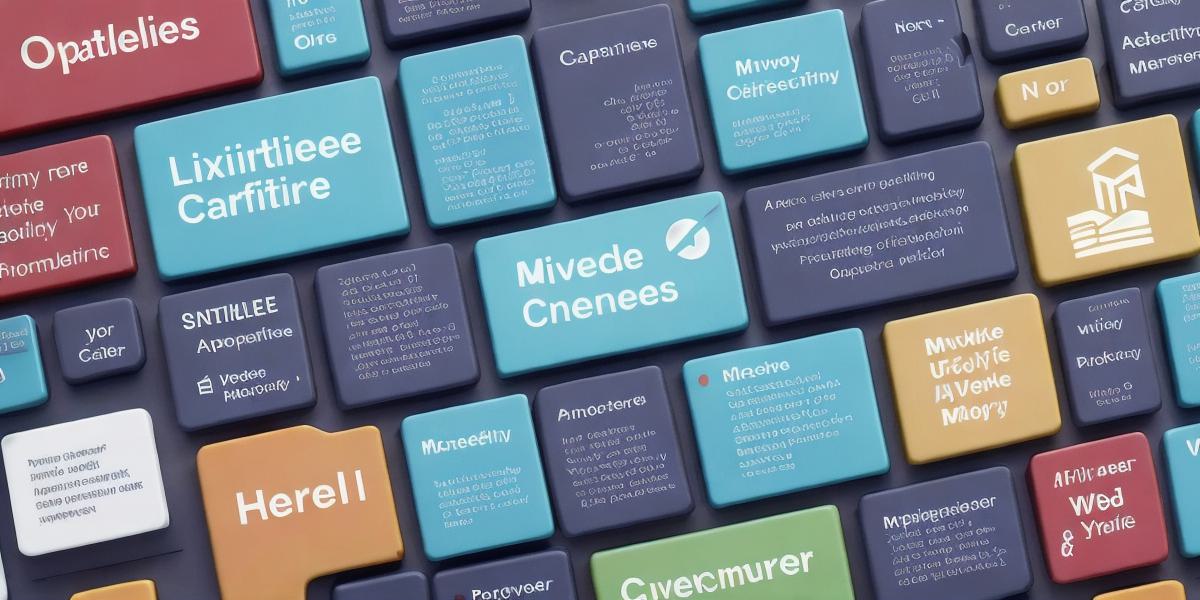Web3 technology is still a relatively new and evolving field, but it’s already having a major impact on many industries. As the adoption of blockchain and other decentralized technologies continues to grow, more and more people are looking for ways to get involved. However, not everyone has the technical skills or background required to be a Web3 developer.
That’s where non-technical careers in Web3 come into play. These roles offer individuals with different skill sets the opportunity to contribute to the development and adoption of decentralized technologies. In this article, we’ll explore some of the most promising non-technical careers in Web3 and provide guidance on how to get started in this exciting field.

1. Business Development Manager
Business development managers are responsible for identifying and pursuing new business opportunities for a company. In the case of Web3 startups, this could involve working with early adopters of blockchain technology or exploring potential use cases in industries such as finance, healthcare, and supply chain management. To be successful in this role, you’ll need strong sales and marketing skills, as well as a deep understanding of the challenges and opportunities presented by Web3 technology.
2. Project Manager
Project managers are responsible for overseeing the planning, execution, and completion of projects within an organization. In the context of Web3, this could involve managing development teams or working on large-scale projects that integrate decentralized technologies into existing systems. To be successful in this role, you’ll need strong organizational skills, as well as experience managing cross-functional teams.
3. Legal Counsel
As Web3 technology continues to evolve, legal and regulatory issues are becoming increasingly important. Lawyers with expertise in areas such as intellectual property law, contracts, and compliance will be in high demand to help startups navigate the complex legal landscape surrounding blockchain and other decentralized technologies. To be successful in this role, you’ll need strong analytical skills, as well as a deep understanding of the legal issues presented by Web3 technology.
4. Communications Specialist
Communications specialists are responsible for developing and executing communication strategies that help organizations connect with their target audiences. In the case of Web3 startups, this could involve working on content marketing campaigns or developing educational materials to help people understand the benefits and potential uses of decentralized technologies. To be successful in this role, you’ll need strong writing and communication skills, as well as a deep understanding of the challenges and opportunities presented by Web3 technology.
5. UX Designer
UX designers are responsible for creating user-friendly interfaces and experiences that enhance the overall user experience (UX) of a product or service. In the context of Web3 applications, this could involve designing intuitive dashboards for users to manage their decentralized assets or creating interactive interfaces that allow people to engage with decentralized applications (dApps). To be successful in this role, you’ll need strong design skills, as well as a deep understanding of the challenges and opportunities presented by Web3 technology.
Getting Started in Non-Technical Web3 Careers
If you’re interested in pursuing a non-technical career in Web3, there are several steps you can take to get started. First, it’s important to stay up-to-date with the latest developments in the field. This could involve reading industry blogs and news sites, attending conferences and webinars, or joining online communities where people are discussing Web3 technology.
Once you have a basic understanding of the field, you can start looking for opportunities to gain hands-on experience. This could involve working on personal projects, volunteering with organizations that are exploring Web3 technologies, or participating in hackathons or other competitions focused on decentralized applications.

Finally, it’s important to network and build relationships within the Web3 community. Attend meetups and conferences, connect with people on social media, and reach out to experts in the field to learn more about their experiences and insights. By building a strong network of contacts, you can increase your chances of finding job opportunities or partnership
